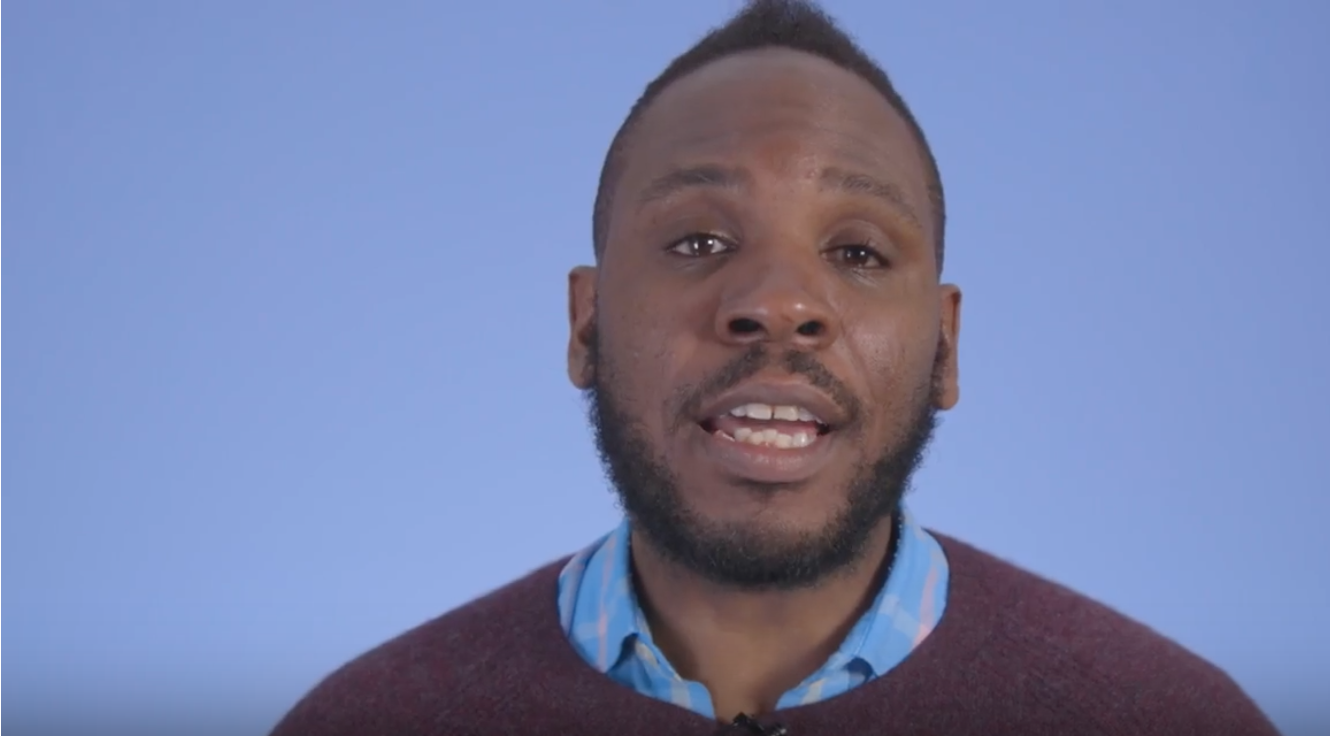Hundreds of LGBT refugees come to Canada every year, escaping persecution and violence at home.
They face “incredible odds,” says Kimahli Powell, executive director of Rainbow Railroad, one of the groups involved in bringing Chechen refugees to Canada last year.
And when they arrive, they often have no resources and nowhere to go. But they can count on the support of Canada’s LGBT communities: “Our community, as we have shown many times again, is ready to rally together to support those individuals,” Powell says.
So what can you do to help?
Many newly landed refugees feel alone, disconnected and don’t know how to settle into their new communities, says Ronald Dieleman, the management, settlement and integration coordinator with FrancoQueer.
If you want to help, talk to an organization in your area that works with refugees and offer to buddy up with someone new to Canada, he suggests.
You can help newcomers get to appointments or learn to navigate the city’s public transit — or take them out and introduce them to life in your town’s LGBT communities.
“Remember, most of you, you had a friend who brought you out (in the village) the first time. It’s the same thing for them,” Dieleman says.
You can also go to your local library with a newly arrived refugee and help them get a library card, suggests Craig Cromwell, refugee settlement coordinator with the Black Coalition for AIDS Prevention.
“It might seem small,” Cromwell says, but having a library card is empowering. Newcomers can take out books and practise English if it’s not their first language, or use computers to look for work, touch up resumés and talk to family back home.
You can also donate to organizations working in your community to support refugees — or organize a group of friends and volunteer your time to those groups, Powell says.
One of the biggest challenges for refugees can be finding housing, says Aleks Dughman-Manzur, refugee ministry program leader at Toronto’s Metropolitan Community Church.
If you have extra space, Dughman-Manzur says, talk to a local refugee support organization and offer to house a newcomer: “You will be transforming your life, as well as other people’s lives.”
Finding affordable rental housing in many cities across Canada is tough — but imagine trying to convince a landlord to rent to you with no credit history, proof of employment or income.
Many refugees leave home with almost nothing, so providing documents can be a challenge, says Habibi Feliciano-Perez, an LGBTQ refugee program coordinator at The 519 in Toronto. If you’re renting out a property, he suggests making accomodations for people who might not be able to dig up financial records.
“How can you use your own power and privilege to support people living at the margins?” asks Yara Kodershah, a coordinator at the Ontario Council of Agencies Serving Immigrants (OCASI).
She says it’s important to confront racism and xenophobia when you see it, but also to think critically about your own opinions and prejudices, as well as the information you share, particularly on social media. Before you click share, ask — is this true, or does it just confirm some internal bias I have?
You can also help refugees feel more at home by learning about how people in other cultures “express their love and their identity,” says Sizwe-Alexandre Inkingi, a coordinator with OCASI.
They suggest reading up on gender expressions and identities around the world to understand how people might have to “translate” themselves in a new country.
You can also write to your member of Parliament, your provincial representative or your city councillor and let them know you care about LGBT refugees and you want them to step up.
You can lobby every level of government to do more, Dughman-Manzur says — whether that’s asking your city councillor to support opening up unused public buildings to house refugees, or demanding that the federal government increase the number of LGBT refugees it sponsors every year.
It’s also important to learn more about the persecution LGBT folks around the world are facing, he says.
Many people know about the underground railroad that brought persecuted Chechens to safety in Canada in 2017, he says — but the same persecution exists in many other countries: “People are facing immediate danger all the time because they’re a member of the LGBTQI community.”
Canada “has a unique opportunity to play a leadership role,” but it’s up to each of us to pitch in and to keep pushing our governments to do more, Powell says.


 Why you can trust Xtra
Why you can trust Xtra


